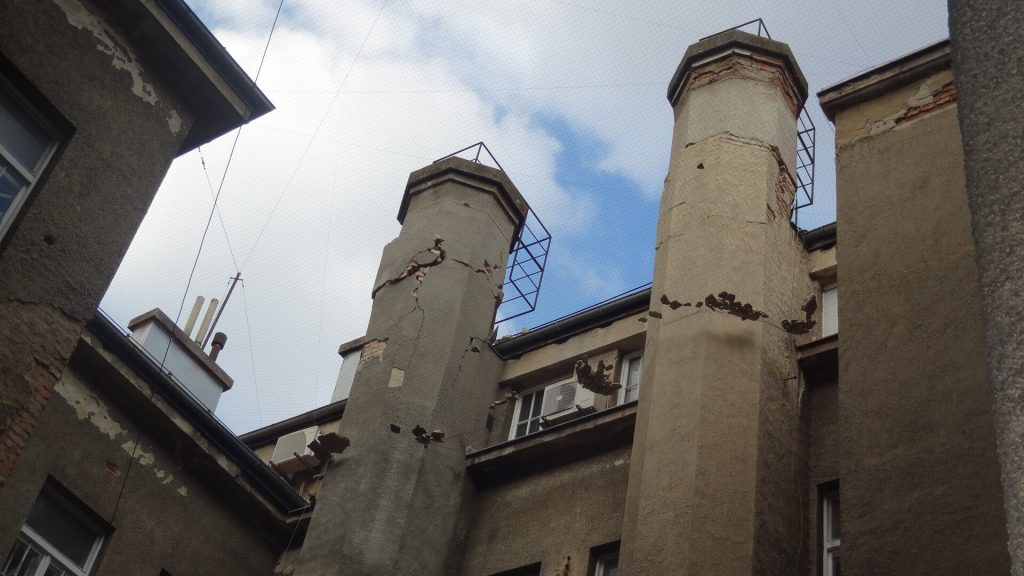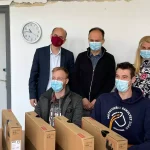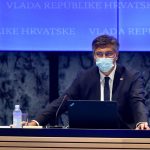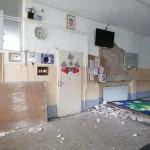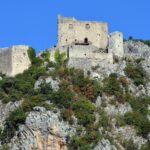With August concluding, the academic community is waking up after a summer break. Students are preparing for exams, and professors are grading those exams as both groups boldly look towards new wins and losses in October and another season of active higher education in Croatia. However, with faculties being low-key in the summer, one might have missed an important action in early July when prime minister Andrej Plenković and education minister Radovan Fuchs came to Zagreb’s National and University Library. They delivered 42 contracts of assigning non-returnable financial aids to reconstruct infrastructure of higher education and scientific institutions hit by the earthquake. The total amount is 2,140,837,980 kuna, and Zagreb’s University Faculty of Science (PMF) received a total of 160.988.403 kuna for its own reconstruction after the natural disaster first hit Zagreb on March 23, 2020, and later Petrinja on December 29, which was also felt heavily in the Croatian capital.
With the University of Zagreb being founded in the middle of the 17th century, teaching and research of natural sciences and mathematics, which led to today’s PMF, can be found almost two years after the university was founded, on April 21, 1876. The faculty, in its current form of working, was established on June 8, 1946. Since then, PMF has worked on its educational and research contributions, whose excellence is recognized domestically and internationally.
„The Faculty designs and conducts relevant university studies and scientific research programs which are an integral part of the higher education process in the fields of biology, physics, geophysics, geography, geology, chemistry, and mathematics,” says the PMF website.
Today, PMF has seven departments (Biology, Physics, Geophysics, Geography, Geology, Chemistry, and Mathematics), organized into 28 divisions. It has around 4000 students enrolled in undergraduate, integrated undergraduate and graduate, and graduate university studies within 35 study programs and about 1000 students at seven postgraduate studies and one postgraduate specialist study.
„It is less known that the PMF also comprises the Seismological Service and its seismological stations all over Croatia, the mareographic station in Bakar, the geomagnetic observatory in Lonjsko polje, and the green jewel located in the very heart of Zagreb – the Botanical Garden. And in the background of it all are nearly 500 scientists and teachers for whom you will not only be just another name on a sheet of paper but a truly personal and (hopefully) successful story about your future and ours“, explained PMF.
The earthquakes damaged PMF, particularly the buildings of biology and geography departments. Still, it is admirable that amidst its own trouble, PMF found a way to help students of the Faculty of Metallurgy in Sisak, which also took a heavy hit from the earthquake, by donating five new laptops for educational purposes.
As TCN previously reported, citizens of Zagreb had mixed feelings regarding how the city and the government handled the situation in Zagreb. However, Croatian Parliament MP Sandra Benčić from the Možemo Green-left coalition, while commenting on the victory of his party colleague Tomislav Tomašević on Zagreb elections, stated that the citizens he helped filling out paperwork for damaged homes needed to receive European funds for the reconstruction, for which Zagreb needs to apply by June 2022 to receive the aid.
With these moves by the new administration and the aforementioned aids for the high scientific institutions, the steps to recover Zagreb, the center of science, culture, politics, economy, and more in the Republic of Croatia are underway. But, it will still take time for citizens to recover fully from 2020’s tragedies.
The results of education and science curiosity pay off. Learn more about Croatian inventions & discoveries: from Tesla to Rimac on our TC page.
For more about education in Croatia, follow TCN’s dedicated page.

